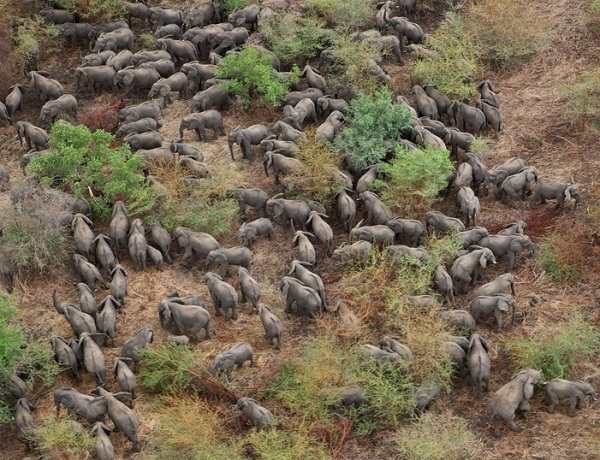Source:
https://economist.com.na/42373/spea...rts-botswanas-course-on-elephant-populations/
What to do with 130,000 Elephants? – Environment Chamber supports Botswana’s course on Elephant populations
Statement by the Namibian Chamber of Environment, representing 42 conservation groups.
A Sub Committee appointed by President Masisi of Botswana recently made its recommendations in a White Paper regarding the hunting ban and human-elephant conflict.
We, as Namibian Conservationists, including environmental NGOs, researchers, community representatives and conservancies, hereby join a group of international conservationists in voicing our support for Botswana’s consultative process to address the challenges associated with managing its large elephant population. We applaud President Masisi and Botswana’s parliament for establishing the consultative process that looks to balance wildlife conservation with the needs and aspirations of the citizens of Botswana.
Namibia has felt the burden of international pressure against our policies that encourage the devolution of rights over, and sustainable use of, natural resources. We therefore take this opportunity to stand in solidarity with Botswana. We would like to draw your attention to an article in
Africa Geographic that sets forth the following important issues that have not been highlighted in other media reports covering this story.
1) President Masisi’s establishment of the subcommittee to conduct a thorough Social Dialogue is a welcome move towards a more democratic style of governance.
2) Masisi’s administration once more opened the research permit application system, which signals his understanding of the role of objective conservation research in finding new solutions to human-elephant conflict.
3) The process embarked upon by Masisi’s administration is a welcome return to Botswana’s historic emphasis on consultation with people at the grassroots level. This also presents an opportunity to strengthen Community-Based Natural Resource Management (CBNRM) in the country.
As Namibian organisations with extensive experience with the CBNRM programme in our country, we are especially interested in extending our support regarding point 3 above. This new dawn for Botswana will present many challenges and opportunities as the government once more involves local communities in wildlife management and conservation. We are therefore ready and willing to assist the government of Botswana in these important endeavours by drawing on the lessons we have learned in Namibia.
Yours in Conservation,
Namibian Chamber of Environment, supported by 42 member and partner organisations.
(Image by Conservation Action Trust)
List of supporting organisations:
- African Conservation Services cc
- African Foundation
- Ashby Associates cc
- A Speiser Environmental Consultants cc
- Brown Hyena Research Project Trust
- Cheetah Conservation Fund (CCF)
- Desert Lion Conservation Trust
- Development Workshop Namibia
- Eco Awards Namibia
- EduVentures
- Environmental Compliance Consulting
- EnviroScience
- Giraffe Conservation Foundation
- Gobabeb Research and Training Centre
- Greenspace
- Integrates Rural Development and Nature Conservation (IRDNC)
- JARO Consultancy
- Kwando Carnivore Programme
- N/a’an ku sê Foundation
- Namibian Associations of CBNRM Support Organisations (NACSO)
- Namib Desert Environmental Education Trust
- Namibia Biomass Industry Group (Incorporated Association not for gain)
- Namibia Bird Club
- Namibia Nature Foundation (NNF)
- Namibia Professional Hunting Association (NAPHA)
- Namibian Environment and Wildlife Society (NEWS)
- Namibian Hydrogeological Association
- NamibRand Nature Reserve
- Otjikoto Trust
- Research and Information Services of Namibia (RAISON)
- Rare & Endangered Species Trust (REST)
- Rooikat Trust
- Southern African Institute for Environmental Assessment (SAIEA)
- Save The Rhino Trust (SRT)
- Scientific Society Swakopmund
- Seabirds and Marine Ecosystems Programme
- Seeis Conservancy
- Sustainable Solutions Trust (SST)
- Tourism Supporting Conservation (Tosco) Trust
- Venture Media
- Zambia Community-based Natural Resource Management (CBNRM) Forum
- Zambia National Community Resource Boards (CRBs) Association


